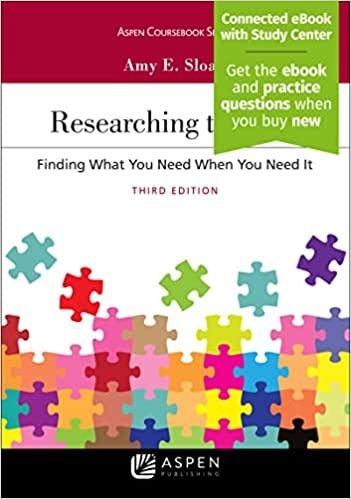Question
The Problem: Recidivism, often known as repeat criminal behavior, is a problem that can be extremely expensive for society. It has repercussions not just for
The Problem:
Recidivism, often known as repeat criminal behavior, is a problem that can be extremely expensive for society. It has repercussions not just for the individual who was wrongfully accused of the crime, but also for the community as a whole and the economy. In the United States, the percentage of repeat criminal offenses is approximately 76.6 percent. This indicates that almost three out of every four former felons will be arrested again within five years after their release from jail or prison (Nagin & Pepper, 2012). The expenses associated with repeat offenses are significant. According to the findings of a research conducted by the Pew Charitable Trusts, states spend around $265 billion annually on correctional, with $80 billion of that amount going towards prisons (Nagin & Pepper, 2012).
The Theory:
The social learning theory is the one that, in my opinion, provides the most compelling explanation for the phenomenon of recidivism. According to the social learning hypothesis, individuals acquire knowledge through seeing the results that result from the actions of others (Bandura, 1977). To put it another way, individuals gain knowledge through observing the consequences that result when others engage in particular activities. They are less inclined to engage in the same behaviors themselves if they observe others being disciplined as a result of those activities. On the other hand, they are more inclined to engage in those actions themselves if they observe that others are rewarded for engaging in those behaviors.
This week, instead of discussing the readings, you'll discuss your final paper. Share parts of your final paper with the class.
- Briefly discuss your problem.
- Briefly explain the theory you used. Give us a quick overview of the theory and then tell us how that theory explains your problem.
- What are you recommending? Should we keep an existing policy, update or revise the policy, end a policy, or introduce a new policy entirely?
In your discussion let us know why your theory is such a good fit to explain and solve the problem you identified. In what ways is your theory limited to explain your problem? Talk about how difficult or easy it is to make a policy based on that theory. Remember that this is a theory class. Your final paper needs to be strong on theory, so use this time to work out any lingering confusion you have with your theory.
Cite sources in your post.
Step by Step Solution
There are 3 Steps involved in it
Step: 1

Get Instant Access to Expert-Tailored Solutions
See step-by-step solutions with expert insights and AI powered tools for academic success
Step: 2

Step: 3

Ace Your Homework with AI
Get the answers you need in no time with our AI-driven, step-by-step assistance
Get Started


